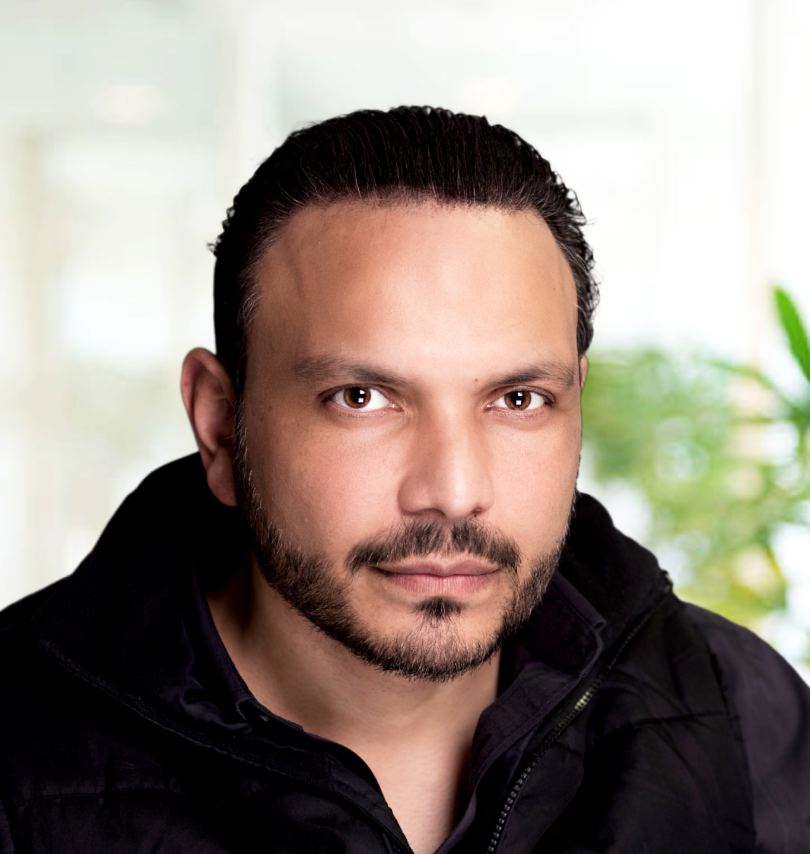

#2 Vyasa: Chris Bouton on using Deep Learning to accelerate biotech R&D
SUBSCRIBE ON:
Introduction To Guest
Dr. Chris Bouton is the CEO of Vyasa Analytics, an AI startup based out of Boston that provides high-scalable, deep learning software and analytics to the life sciences industry. Their product enables organizations to ask complex questions across large scale data sets, and gain critical insights to make better business decisions. Believe it or not, Chris’ journey started at an early age with a passion for sharks. Following his passion, Chris studied marine biology which led him to receive his undergraduate degree in Neuroscience from Amherst College. He later attended graduate school at John Hopkins University, following his passion and earning a PhD in Neuroscience.
The Call To Action
After Chris graduated from John Hopkins University, he started working for a large firm. During this time, he began to gain interest in how we can do a better job in our work environments by tying data together. His fascination with Data Integration prompted his idea to start his own company. He even credits his new venture to following the signs. When Chris was speaking with a friend about jumping ship and starting his own business, he happened to look at the fridge and saw a sign that said: “Leap and the net will appear.” In that moment, Chris knew it was now or never to take the leap of faith. He knew the key to happiness was pursuing his main interests.
Coming Up With The Idea
Chris’ idea behind Vysasa Analytics started to reveal itself during the hype around Deep Learning AI. This new phenomenon peaked his curiosity. Chris was eager to understand if this idea was all hype, or actually something interesting and new with the deep learning algorithm. As he started to research further, he realized the algorithms were based on neural networks, which he had appreciation for as a neuroscientist. Chris began to weave the similarities together. With the realization that he can form a company based on algorithms that have to do with neural networks, while performing data analytics for the life sciences space, Chris knew his second startup, Vyasa Analytics, was born.
Testing The Product
To test the product at Vyasa Analytics, it took Chris about two years of training algorithms and understanding their different use cases. Throughout this time, Chris was running multiple projects while testing where the algorithms are most applicable in the life sciences space. Chris stresses the importance of understanding the learning capabilities of deep learning algorithms, which takes patience and time.
Throughout his work, Chris learned that you must know how you train the algorithms in order to define their capabilities. It starts with asking the question: “how and where is each algorithm most effective for a particular task?” While testing algorithms for various applications Chris discovered they need new data architectures to feed the algorithms, which led to Vyasa creating Data Fabric offering for AI applications. Using Data Fabric (layer), their clients have been able to handle many different forms of raw data at scale. Chris began to see the value of algorithms in the life sciences space.
Validating The Market
When it came to a particular market, Chris focused on the life science and healthcare industry. Using deep learning algorithms, Vyasa has been able to specialize the use of these tools for their niche market. For example, Vyasa Analytics can use algorithms for life science tasks, such as: text analytics, image analytics, and small compound analytics (to name a few). Each one of these areas is highly specialized and requires a deep understanding of each space. To successfully validate the market, one really needs to understand this type of data and how exactly you’d like the algorithm to perform.
Challenges Encountered
The biggest challenge for Chris has been the AI hype cycle. With so much talk about Artificial Intelligence, he expresses the importance of really knowing the facts from hype. Artificial Intelligence has been around for a long time, and we now must be specific when speaking about AI and it’s capabilities.
Another challenge Chris has encountered is selling his services. Meeting with different companies and explaining how Vyasa can be of value has proven to be challenging. The key is taking the time to demonstrate the product. This way, potential clients can not only experience how the AI technology works, but see the benefits firsthand.
Future Endeavors/Advice For Industry Leaders
Moving forward, Chris’ advice for Industry Leaders is to remain open to innovation. The ability of pharma and biotech to adapt to the emerging novel technology over the course of their operations is key to becoming more efficient. Through POC engagements with small startups, to experimenting and innovating with cutting edge technologies, large organizations must be open to innovation. Scientific research in the healthcare space is vital for humanity. Novel technology and innovation is key for our future.
Advice For Aspiring AI Entrepreneurs
Chris’ advice for aspiring AI Entrepreneurs is to make sure you really understand what you want your algorithm to accomplish when it comes to deep learning. Know exactly what is different with each algorithm, how you want to train the algorithm, and the capabilities of each particular algorithm. Also understand that this process takes time.
Twitter: https://twitter.coms/chrisbouton
LinkedIn: www.linkedin.com/in/cbouton
Website: www.vyasa.com

About the Host
Ari Yacobi is a data scientist, a teacher and a storyteller who has spent his career at…Read the Bio



